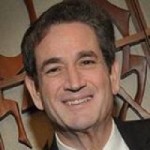By Rabbi Ben Kamin

OCEANSIDE, California – “God’s work on earth must truly be our own,” he declared in those thick Bostonian tones at the close of his renowned Inaugural Address on the bitter cold morning of January 20, 1961. A flawed man with impeccable charm and poise, a legend larger than himself, he remains the eternally young icon of our national wistfulness.
John Fitzgerald Kennedy was born on May 29, 1917, as American “doughboys” were being deployed to Europe in the closing frames of World War I.
His gilded childhood and adolescence were shaped by his family-bred athleticism, the fervent paternalism of his father, Joseph P. Kennedy (the dubious US ambassador to the UK who would have appeased Hitler beyond any reasonable comprehension), and the future president’s own service in the Navy during World War II.
An amalgam of facts and fictions established his heroism as a PT-boat skipper in the Pacific; he wrote books, augmented by ghost-writers that nonetheless established his keen sense of history, particularly his affection for England—where he spent a lot of time as a young man.
His predecessor as president, Gen. Dwight D. Eisenhower, actually did a lot more for the nascent civil rights movement (Brown v. Board of Education, 1954; federal intervention in the Little Rock segregation crisis, 1957) than JFK did—though Kennedy, of course, did not have anywhere near as much time to work on the issue.
Kennedy was spirited and bold in foreign policy and relatively indifferent to civil rights and he even frowned upon the 1963 March on Washington—fearing that it might cost him Southern support in the 1964 election he did not live to see.
But President Kennedy was imperially literate, funny, truly young, and he lifted our spirits. David Brinkley, the late and eminent anchor of NBC News, once told me: “I just liked Kennedy so damn much. He made Washington sparkle.” And Congressman Louis Stokes, a departed old friend from Cleveland, who chaired the House Select Committee on Assassinations, and who believes that there was more than one shooter in Dallas, said to me one night: “It doesn’t matter who killed him. It matters how it killed us.”
After the decidedly disastrous invasion of the Bay of Pigs in 1961, which deeply embarrassed the new president and called his youth into account, he stood before the White House press corps and stated: “I am the chief executive officer in charge and the responsibility is mine.”
Taking responsibility for a mistake? Appealing to our better natures and displaying wit and charm in Washington? No wonder we will never stop looking for our beloved President Kennedy.
*
Rabbi Kamin is an author and freelance writer who may be contacted via ben.kamin@sdjewishworld.com